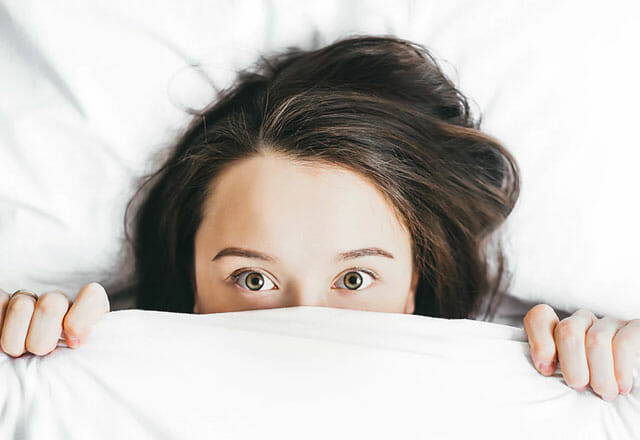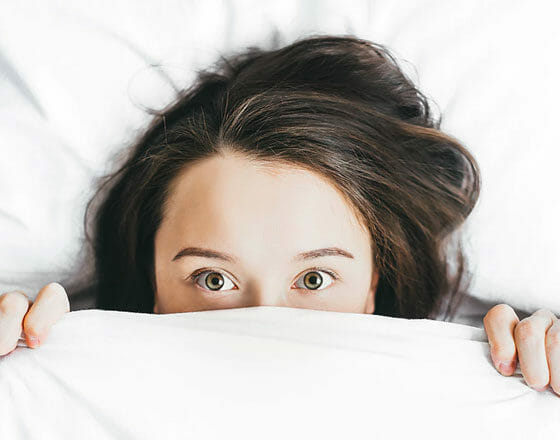My Eyes Don’t Feel Right… Am I Getting Enough Sleep?

You probably have some sense that sleep is important to maintaining healthy eyes. After all, if you haven’t had enough sleep, your eyes often feel heavy and dry and you get puffy circles underneath them. But if you’re one of the countless individuals who just can’t get enough sleep every night, it might help you to know just how incredibly important sleep is to your eye health.
In face, there are a number of eye conditions that can result from lack of proper sleep. Read on to learn more about these conditions, and how sleep (or lack thereof), may be a factor.
Dry Eyes and Lack of Sleep
Dry eye is exactly what it sounds like: a condition where your eyes are not properly lubricated, as can happen when they haven’t had a chance to rest for a full night of sleep. Dry eye is not only uncomfortable, but can also lead to symptoms such as itching, redness, blurred vision and light sensitivity.
Ischemic Optic Neuropathy
One of the most troublesome conditions you may be concerned about related to lack of sleep is ischemic optic neuropathy. This is a condition where there is improper blood flow to the optic nerve, resulting in sharp pain in your eyes and difficulty seeing.
Glaucoma
If your problem getting enough sleep is related to sleep apnea, you may be at risk for glaucoma. Lack of oxygen, which is a major problem for people with sleep apnea, is also linked to glaucoma, which can also result in optic nerve damage and loss of vision or even blindness.
Other, less critical but very unpleasant eye conditions related to lack of sleep include eye spasms, bloodshot eyes and dark, puffy circles under the eyes.
Getting Better Sleep for Better Eye Health
Even if you have a busy lifestyle, you can take steps to help yourself get better sleep and protect your eyes in the process. Keeping your bedroom as dark as possible can be a big help, for instance. Blackout curtains and a sleep mask are two great ways to keep out light when it’s time to sleep, whether we’re talking about a daytime nap or an uninterrupted eight hours through the night.
Just as any light can interfere with your sleep, so can unwanted sounds. Consider soundproofing solutions for your bedroom, which may include making things quieter or finding a white noise machine or app that works for you.
In general, when it comes to getting sleep for healthy vision, it’s best to avoid screens. Though it can be hard to disconnect from the digital world in the evening, it’s worth it. It’s been shown in a variety of studies that the screens from TV, mobile devices, and laptops can interfere with high quality, healthy sleep. Switch to a good book or some soothing music a couple hours before bedtime.
Care for Your Eyes All Year Round
In addition to getting more sleep, you should care for your eyes by eating right, exercising, and getting regular eye exams from a qualified professional. In the Portland area, the company to call for great eye care is Beaumont Vision. We have highly qualified, caring optometric physicians who can provide top-notch care in an intimate, professional environment.
Regular eye exams can help your doctor identify potential eye problems before they become a threat to your vision, and allow them to offer you useful solutions while there’s plenty of time to take advantage of them. Contact Beaumont Vision for eye exams as well as highly fashionable eyewear today.

